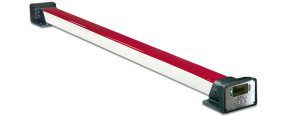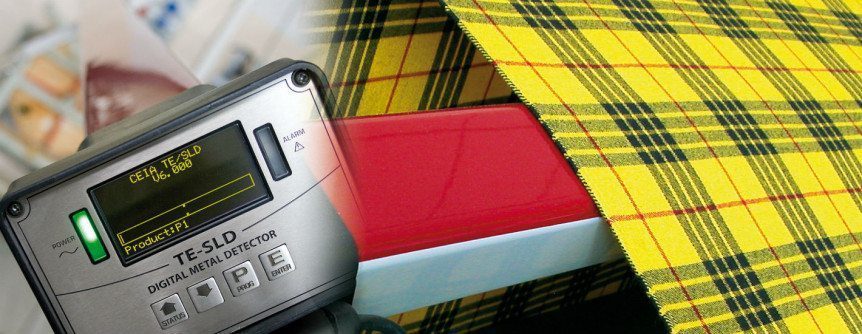When we think of the textile industry, we can quickly identify a number of different potential metal hazards that need to be considered in order to protect both end users and the brands selling to them, from harm. These include items that perhaps should be in the end product such as loose buttons, zips and studs as well as those that shouldn’t such as staples, whole needles or broken needle tips.
Metal detection and contaminant removal is also necessary in bulk textile material production processes to protect downstream equipment from elements that may cause damage, sparks or spoil the end textiles themselves.
Choosing the right metal detector

TE/SLD Textile Metal Detector
Textile production processes generally involve large volumes of sheet materials and hence are not well suited to passing the product through an aperture. To overcome this, one of the most common styles of detectors is the single sided metal detector, an example of which is shown in the image. These units are suitable for use with large sheets of material and emit a field into the product stream that detects the ferrous contaminant when it passes through this field.
For finished products more traditional units may also be used to identify any contaminants in the packaged goods.
CEIA’s TE/SLD detector is a multi-purpose, micro-sensitive bar metal detector that has many applications within the textile industry. Sensitivity can be adjusted digitally to match the size of metal fragments that must be detected and signal analysis allows the user to optimise detection based on the production line’s speed.
The TE/SLD has excellent immunity to environmental conditions such as electromagnetic interference, static, humidity, dust and temperature and is available with an IP65 rating if required. Its compact and robust design allows it be installed in a wide variety of locations, both for new production lines and for retrofitting into existing ones.
If you have a metal detection need in either the textile or another industry sector and are looking for advice, the TE/SLD may be ideal. Please give us a call and we can discuss your requirements.

